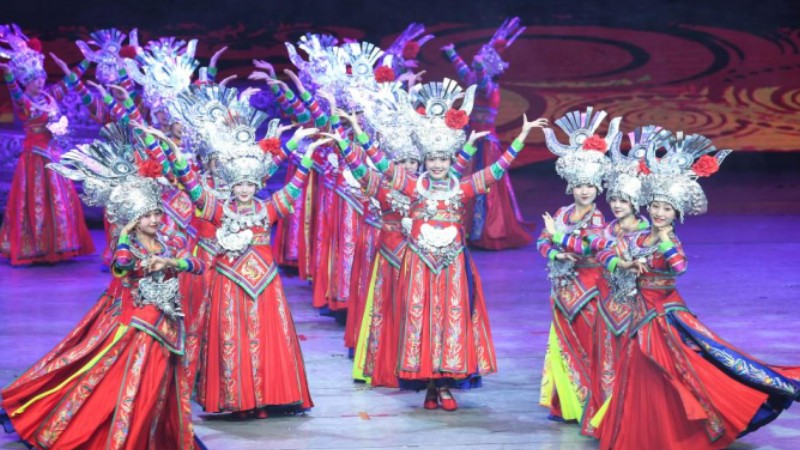Exam under reform allows more individuals to chase diverse dreams
BEIJING, June 10 (Xinhua) -- When China's first civilian astronaut Gui Haichao was sent to the space station last month, he might not know he would become an idol for numerous students sitting the country's college entrance examination, or "gaokao."
Through the examination, Gui, from a rural family, was admitted to Beihang University, which is prestigious in terms of aeronautics and astronautics, and later became a crew member on the Shenzhou-16 spaceflight mission.
"Gui's story is very inspiring. It proves that people's dreams can be realized by making efforts," said Xiong Wangyu, an examinee from Nanjiang County, southwest China's Sichuan Province.
A physics lover, Xiong hopes to major in aeronautics and astronautics and contribute to science in the future like Gui.
The exact number of applicants for this year's "gaokao" is 12.91 million, a record high since matriculation resumed in 1977. Beginning on Wednesday, their tests are set to conclude by Saturday.
Zhong Huaqiang, from the city of Ganzhou in east China's Jiangxi Province, dreams of majoring in Chinese language and literature at a university, as he thinks words are powerful. His favorite poet is Yu Xiuhua, a disabled peasant who became an internet hit years ago.
Born with cerebral palsy, Zhong is unable to walk. Over the past 10 years, his classmate Zhu Jinxiang has been his "legs." Zhu carries him to class, to the toilet and almost everywhere, while Zhong, excellent in academic performance, helps Zhu with his homework.
Though sitting in different classrooms for the examination, they are pursuing the same goal.
"We hope we can enter the same university," said Zhong, echoed by Zhu.
Nearly 10,000 examinees with disabilities applied to take the exam, according to the Ministry of Education.
Deemed the most important event for Chinese school students, "gaokao" is hailed as a fair system to select talents.
Authorities have launched a special operation to crack down hard on cheating in the exam, especially violations such as using mobile phones and other telecommunications gadgets. High-tech facilities such as metal detector gates and face recognition systems are used in many places.
China is conducting a "gaokao" reform, gradually adopting a "3+3" or "3+1+2" model. In addition to math, Chinese and English, which are mandatory subjects, examinees can take the exams for three elective subjects under the "3+3" model. Under the "3+1+2" model, choosing physics or history is mandatory.
A total of 29 provincial areas in the country will adopt the new "gaokao" models by 2025.
Sun Jiamei, a parent of a student set to take the examination next year in Harbin, capital of northeast China's Heilongjiang Province, said the reform that gives students more choices regarding the exam-subject combo will allow students to make independent choices and combine the subjects they choose to assist with career planning.
Yang Feng, a professor at the University of Science and Technology of China, said the reform creates a scientific approach to selecting talents.
"Top talents stand out because of their own enthusiasm for science and technology, and because of an enabling environment that shields their potential for innovation from being prematurely stifled," said Yang, adding that the reform is designed to give students greater say in their academic pursuits and career choices.
Moreover, Yang said that as boundaries between different academic subjects get increasingly murkier with development, a multi-disciplinary academic background becomes imperative for students, and the reform is intended to steer the nation's educators into placing higher attention on students' all-around capacity.
Photos
Related Stories
Copyright © 2023 People's Daily Online. All Rights Reserved.









